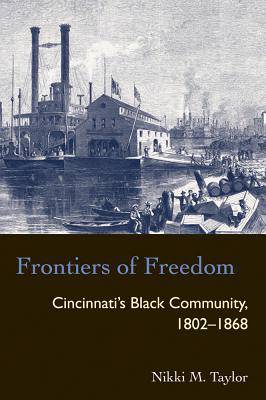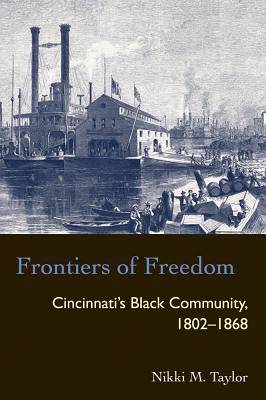
Bedankt voor het vertrouwen het afgelopen jaar! Om jou te bedanken bieden we GRATIS verzending (in België) aan op alles gedurende de hele maand januari.
- Afhalen na 1 uur in een winkel met voorraad
- In januari gratis thuislevering in België
- Ruim aanbod met 7 miljoen producten
Bedankt voor het vertrouwen het afgelopen jaar! Om jou te bedanken bieden we GRATIS verzending (in België) aan op alles gedurende de hele maand januari.
- Afhalen na 1 uur in een winkel met voorraad
- In januari gratis thuislevering in België
- Ruim aanbod met 7 miljoen producten
Zoeken
Omschrijving
Nineteenth-century Cincinnati was northern in its geography, southern in its economy and politics, and western in its commercial aspirations. While those identities presented a crossroad of opportunity for native whites and immigrants, African Americans endured economic repression and a denial of civil rights, compounded by extreme and frequent mob violence. No other northern city rivaled Cincinnati's vicious mob spirit. Frontiers of Freedom follows the black community as it moved from alienation and vulnerability in the 1820s toward collective consciousness and, eventually, political self-respect and self-determination. As author Nikki M. Taylor points out, this was a community that at times supported all-black communities, armed self-defense, and separate, but independent, black schools. Black Cincinnati's strategies to gain equality and citizenship were as dynamic as they were effective. When the black community united in armed defense of its homes and property during an 1841 mob attack, it demonstrated that it was no longer willing to be exiled from the city as it had been in 1829. Frontiers of Freedom chronicles alternating moments of triumph and tribulation, of pride and pain; but more than anything, it chronicles the resilience of the black community in a particularly difficult urban context at a defining moment in American history.
Specificaties
Betrokkenen
- Auteur(s):
- Uitgeverij:
Inhoud
- Aantal bladzijden:
- 328
- Taal:
- Engels
- Reeks:
Eigenschappen
- Productcode (EAN):
- 9780821415801
- Verschijningsdatum:
- 26/01/2005
- Uitvoering:
- Paperback
- Formaat:
- Trade paperback (VS)
- Afmetingen:
- 146 mm x 217 mm
- Gewicht:
- 458 g

Alleen bij Standaard Boekhandel
+ 111 punten op je klantenkaart van Standaard Boekhandel
Beoordelingen
We publiceren alleen reviews die voldoen aan de voorwaarden voor reviews. Bekijk onze voorwaarden voor reviews.









